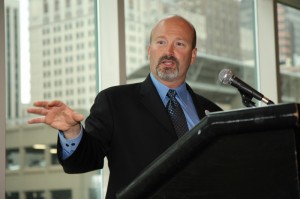 Dear friends in the fight to end colon cancer, You probably know that colorectal cancer is the leading cancer killer among non-smoking men and women in the United States.
Dear friends in the fight to end colon cancer, You probably know that colorectal cancer is the leading cancer killer among non-smoking men and women in the United States.
You may also know that it mainly strikes men and women age 50 and older. But did you know the number of people diagnosed with colon cancer under age 50 is increasing?
The U.S. has seen a dramatic, unexplained, and unaddressed shift in colorectal cancer paradigm in the last decade. Fewer people age 50 and older are being diagnosed due to an increase in screening in that age group, but more people are being diagnosed before they reach 50.
In roughly a decade, the incidence in the 40 to 44 age group rose 67 percent. That age group faced the steepest increase, but every age group from 20 to 49 experienced an increase. Approximately 10 percent of colorectal cancer cases are now in people under 50, and many of those cases are late-stage. Also, 20 percent of all rectal cancers are now diagnosed in people under 50. This must be addressed, and you can help.
Why is this happening?
The biology and behavior of colon cancer is changing, that’s for sure. Why? There are many theories, but no definitive explanation yet. Here’s what we do know: The communication strategy for colon cancer is outdated. By focusing the message of screening and prevention to people who are primarily 50 and older, we miss two important opportunities that matter to both patients and providers.
First, people with family histories should understand the importance and discuss the appropriate time for screening with their physicians beginning at 40 — at least. Second, patients and providers need to understand the symptoms and signs of colon cancer and the importance of prompt evaluation in any age group, especially those in their 30s and 40s.
So, armed with this information, what should we do?
1)Educate your family on the importance of talking about family history, and of knowing the symptoms of colon cancer.
2) Educate your community about screening so people are aware of the importance of being screened at the appropriate time. Share your story; reach out to cancer-fighting community groups and ensure they are aware of the changing trends. Help them develop a plan, and ask them to make this a priority. Write letters, speak up at conference, and mention this to community members you meet.
3) Educate physicians on this rise in the number of people under 50 being diagnosed with colon cancer, and make sure they identify the symptoms and risk factors in their patients at the appropriate time.
4) Advocate for an immediate update to our communication strategy for colon cancer screening. Work with the physicians and community groups to shift the conversation from age 50, to age 40 or younger.
5) Request a response. Be polite and persistent.
Together, we will address this trend, and reverse it.
Sincerely,
Whitney F. Jones, MD
Gastroenterologist
Founder, Colon Cancer Prevention Project
Medical Science Advisory Committee Member, Colon Cancer Alliance
You must be logged in to post a comment.